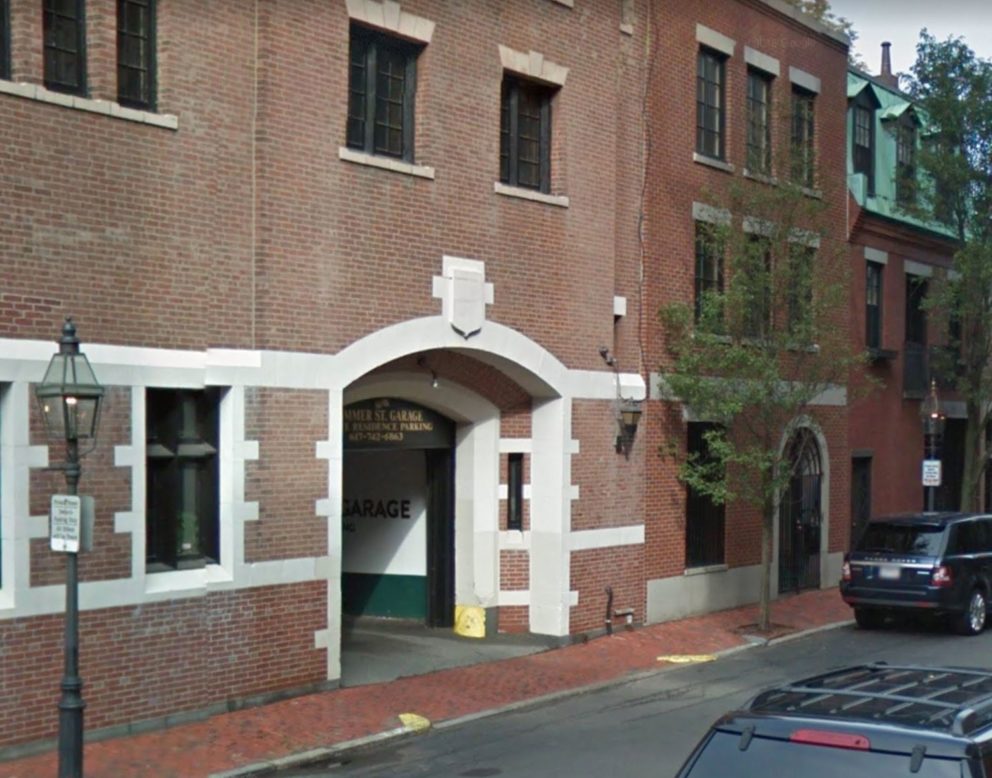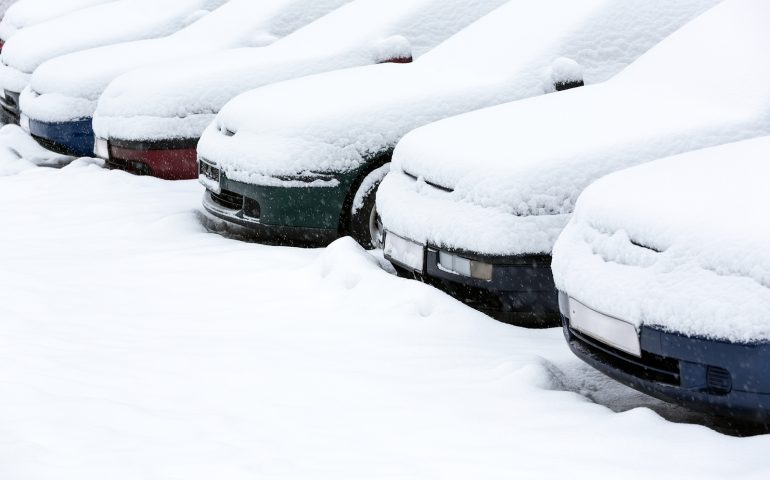Here we are in 2020 and jokes about the cost of parking in Boston have been alive and well for at least 20 years. In our downtown neighborhoods, single parking spaces can be sold for hundreds of thousands of dollars. For example, a garage spot at 70 Brimmer Street (the Brimmer Street Garage) in Beacon Hill is currently listed for $460,000 and an outdoor spot at 195 Beacon Street is listed for $325,000. There are no shortage of examples of parking spaces selling for over $200,000 in the Back Bay and Beacon Hill.

70 Brimmer Street in Beacon Hill is listed for $460,000
Sales in the Brimmer Street Garage in the last 2 years:
Date Price Parking Space SF $/SF
Sold 08/12/19 $450,000 70 Brimmer St # 232 171 $2,632
Sold 05/31/19 $455,000 70 Brimmer St # 333 171 $2,661
Sold 03/15/19 $450,000 70 Brimmer St # 237 171 $2,632
Sold 06/28/18 $455,000 70 Brimmer St # 331 171 $2,661
Sold 05/29/18 $400,000 70 Brimmer St # 230 171 $2,339
Sold 03/20/18 $450,000 70 Brimmer St # 235 171 $2,632
Buyers have been paying a premium for ownership of these small parcels of land to park their car for a generation. However, as technology pervades every aspect of our lives, it would seem we are bound to confront, sooner rather than later, a burst of the parking pricing bubble. By 2030, do we really believe that parking spaces will be as valuable as they are in today’s (still) very car dependent world?
An Evolving History
The proliferation of online ordering will likely go down as one of the straws that broke the proverbial “camel’s back” in terms of car necessity for city dwellers. $86 billion is the expected spending on online food ordering in the US by 2023. Tasks like grocery shopping, which used to require a car, can now be accomplished with a few mouse clicks. Claiming 91 million users globally and a 65% market share in North America, Uber is the monster of ride sharing. This technology gives people of all ages a way to travel at affordable prices without the burden of driving (not to mention buying, maintaining and, of course, PARKING a car). Transportation is expected to be even cheaper once autonomous cars enter the equation. Most experts expect that to happen in urban areas by 2030.
The writing is on the wall. With these new transportation options, young people feel less inclined to acquire a driver’s license. The percentages of 20- to 24-year-olds with driver’s licenses in 1983, 2008, 2011, and 2014 were 91.8%, 82.0%, 79.7%, and 76.7%, respectively.
There’s a change that is especially pronounced in teens. From 2012 to 2017 there were less than 9 million young drivers for the first time since 1994. In 2014, 24.5 percent of 16-year-olds had a license, a 47-percent decrease from 1983, when 46.2 percent did. And at the tail end of the teen years, 69 percent of 19-year-olds had licenses in 2014, compared to 87.3 percent in 1983, a 21-percent decrease.” The Atlantic.
Fast forward to 2027 (it’s closer to us than 2013!), as this next generation moves into the housing market, how will their learned behaviors with cars shape the requirements they have for their housing?
Usage Today
Of those who do drive and own cars, on average they leave their cars idle/unused 95% of the time. As such, car-sharing models have seen real investment from venture capital investors.

Autonomous vehicles remain the golden ticket for the traffic bubble that currently ensnares Boston area motorists. Tesla has been talking about the idea that “if you own an autonomous vehicle and you’re not using it 95% of the time, then let that autonomous vehicle go out and work for you.” Marcus. Instead of being parked, these automated cars could have the ability to work for you while you are working, or while you are home. If the world chases that dream, it would leave a lot of parking spaces in the city as surplus space.
Most parking parcels in Boston are ~200 SF. As parking spaces today, their value maxes out around $1,500/SF. If we apply the highest possible $/SF for residential uses to those spaces ($3,000/SF), they would be worth $600,000. However, they would have to have habitable buildings to fetch that pricing and that would be expensive to build. Not to mention, the city’s zoning board has no intention of letting owners build on the parking spaces they own in the city’s mostly public alleys.
So, the question becomes, when does the Boston’s parking bubble burst? Perhaps more poignantly, should you be selling your parking space in the 2020’s?